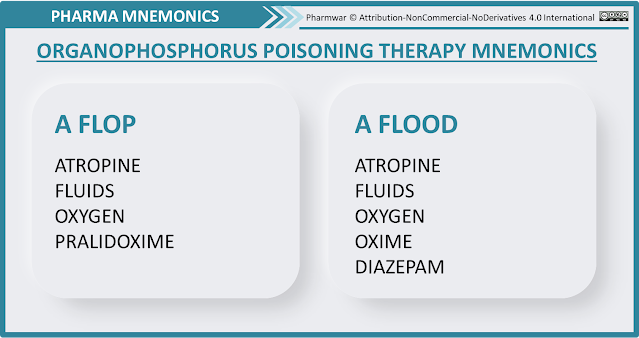Organophosphorus esters are acetylcholinesterase (AChE) inhibitors widely used in agriculture as insecticides, and in industry, and some of them (like Sarin) have even been used as chemical warfare agents.
Their acute toxicity is due to the covalent (“biologically
translated” in irreversible) inhibition of the enzyme acetylcholinesterase
(AChE), which metabolizes the neurotransmitter acetylcholine (ACh). This
inhibition causes the accumulation of ACh which drives a sympathomimetic response
due to stimulation of nicotinic receptors in the adrenal medulla followed by a parasympathomimetic
response due to stimulation of muscarinic receptors. In addition,
organophosphorus agents cause an acetylcholine overflow at neuromuscular
synapses with ensuing depolarizing block, requiring artificial ventilation. Moreover, central cholinergic receptors are activated and this results clinically in
seizure activity.
The therapy of organophosphorus poisoning is known by this
catchy acronym
A FLOP =
Atropine,
FLuids,
Oxygen,
Pralidoxime.
A more complete mnemonic would be
A FLOOD =
Atropine,
FLuids,
Oxygen,
Oxime,
Diazepam.
This latter version includes the control of the convulsions
by benzodiazepines and it reminds of the clinical symptoms: the “flood” of secretions
generated by cholinergic excitations.
References:
https://www.ingentaconnect.com/contentone/govi/pharmaz/2012/00000067/00000010/art00013?crawler=true

Comments
Post a Comment